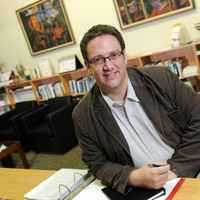
Brad Wuetherick
University of British Columbia, Office of the Provost and VP Academic, Associate Provost, Academic Programs, Teaching and Learning
I am the Associate Provost, Academic Programs, Teaching and Learning, and serve as a member of the Provost and Vice-President Academic's senior executive team with institutional responsibilities for learning, teaching, campus internationalization and quality assurance. I have previously been Executive Director, Learning and Teaching at Dalhousie University in Halifax, NS, the Program Director for the Gwenna Moss Centre for Teaching Effectiveness at the University of Saskatchewan in Saskatoon, SK, and previously held several positions at the University of Alberta in Edmonton, AB.
My research interests, and current/former research projects include: research-based teaching and learning/the integration of teaching and research; the scholarship of teaching and learning (in particular, how we work with faculty to engage in SOTL); curriculum development, innovation and renewal (in particular how academic leaders make decisions about curriculum development); academic development (in particular, how we might theorize academic development); activist pedagogies in higher education; developing leadership as a graduate attribute; and teaching with technologies (including eportfolios and learning analytics).
Address: ADM 119, 1138 Alumni Ave
Kelowna, BC Canada V1V 1V7
My research interests, and current/former research projects include: research-based teaching and learning/the integration of teaching and research; the scholarship of teaching and learning (in particular, how we work with faculty to engage in SOTL); curriculum development, innovation and renewal (in particular how academic leaders make decisions about curriculum development); academic development (in particular, how we might theorize academic development); activist pedagogies in higher education; developing leadership as a graduate attribute; and teaching with technologies (including eportfolios and learning analytics).
Address: ADM 119, 1138 Alumni Ave
Kelowna, BC Canada V1V 1V7
less
Related Authors
Judith L Green
University of California, Santa Barbara
Prof Attiya Waris
University of Nairobi, Kenya
Andreas Umland
National University of "Kyiv-Mohyla Academy"
Ashraf M. Salama
Northumbria University
Prof Abdulai Abukari
The British University in Dubai
Ros Woodhouse
York University
David Seamon
Kansas State University
Jamie Wood
University of Lincoln
Monica Marquina
CONICET
Armando Marques-Guedes
UNL - New University of Lisbon
InterestsView All (11)
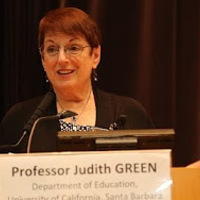
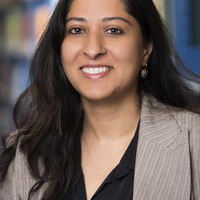

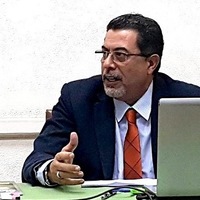
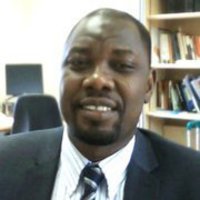


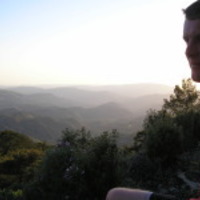


Uploads
Papers by Brad Wuetherick
comprehensively assessed the level and extent to which the
Scholarship of Teaching and Learning (SoTL) was being conducted
amongst faculty and staff at the University of Saskatchewan, and
identifies the barriers and challenges faced by SoTL practitioners.
state of the Scholarship of Teaching and Learning (SoTL) and
assessing the perceptions of Canadian SoTL scholars at the micro
(individual), meso (departmental), macro (institutional), and mega
(disciplinary) contexts.
"CONCLUSION: For the benefit of students, employers, and society, data literacy must be recognized as a necessary civic skill (Swan et al., 2009). This recognition should come from all levels of government, and from post-‐‑secondary institutions. There needs to be agreement on what elements of data literacy are necessary in an undergraduate core curriculum, in order to provide a consistent foundational education for those entering an increasingly data-dependent workforce."
support for UGRI and the promotion of dissemination activities.
in the UK and North America, though the experience seems less relevant to peers in Australasian contexts. And use of the Switzerland metaphor is also noted by Little and Green (2012) in their empirical research with developers elsewhere in this issue. It seems that the neutrality referred to in this manner involves impartiality, non-partisanship, and confidentiality, which are important in certain aspects of academic development work."
This paper explores some of the issues related to identifying threshold concepts in the humanities. We propose using the process of ‘decoding the disciplines,’ articulated by Middendorf and Pace (2004), to engage academic staff in the humanities in a conversation about bottlenecks experienced by students, how those bottlenecks are overcome by discipline specialists, and how we provide students opportunities to learn, practice and get feedback on the operations used by those disciplinary specialists to overcome those bottlenecks. In so doing, one particular case study, that of students’ difficulty understanding the ‘language’ of art in art history, is used to examine the ways in which decoding the disciplines can inform the identification of threshold concepts in the humanities, and the means by which we might adjust our curriculum development practices and pedagogical approaches to more effectively facilitate students’ passing of these thresholds.
comprehensively assessed the level and extent to which the
Scholarship of Teaching and Learning (SoTL) was being conducted
amongst faculty and staff at the University of Saskatchewan, and
identifies the barriers and challenges faced by SoTL practitioners.
state of the Scholarship of Teaching and Learning (SoTL) and
assessing the perceptions of Canadian SoTL scholars at the micro
(individual), meso (departmental), macro (institutional), and mega
(disciplinary) contexts.
"CONCLUSION: For the benefit of students, employers, and society, data literacy must be recognized as a necessary civic skill (Swan et al., 2009). This recognition should come from all levels of government, and from post-‐‑secondary institutions. There needs to be agreement on what elements of data literacy are necessary in an undergraduate core curriculum, in order to provide a consistent foundational education for those entering an increasingly data-dependent workforce."
support for UGRI and the promotion of dissemination activities.
in the UK and North America, though the experience seems less relevant to peers in Australasian contexts. And use of the Switzerland metaphor is also noted by Little and Green (2012) in their empirical research with developers elsewhere in this issue. It seems that the neutrality referred to in this manner involves impartiality, non-partisanship, and confidentiality, which are important in certain aspects of academic development work."
This paper explores some of the issues related to identifying threshold concepts in the humanities. We propose using the process of ‘decoding the disciplines,’ articulated by Middendorf and Pace (2004), to engage academic staff in the humanities in a conversation about bottlenecks experienced by students, how those bottlenecks are overcome by discipline specialists, and how we provide students opportunities to learn, practice and get feedback on the operations used by those disciplinary specialists to overcome those bottlenecks. In so doing, one particular case study, that of students’ difficulty understanding the ‘language’ of art in art history, is used to examine the ways in which decoding the disciplines can inform the identification of threshold concepts in the humanities, and the means by which we might adjust our curriculum development practices and pedagogical approaches to more effectively facilitate students’ passing of these thresholds.
This presentation will report on two studies that aim to address this gap. First, the Society for Teaching and Learning in Higher Education in Canada approved a study to explore the current state of the SoTL in Canadian Higher Education. The purpose of the project was to examine how SoTL activity and support has been changing in recent years in Canada. The second study assessed the degree to which SoTL was being conducted amongst academic and administrative staff at a single medical doctoral university in Western Canada. This study sought to categorize the depth and intensity of SoTL activity using a model put forth by Trigwell (2012), examining whether demographic variables such as gender, academic rank and academic discipline impact one’s likelihood of SoTL engagement. The presenters will use our findings to illuminate the current state of SoTL in Canada.
We will begin by identifying and surfacing various religious metaphors potentially of use in ED and participants will then experience some familiar "sermons" on "best practices" commonly found in ED workshops and courses. We will then work together to identify a range of generalizable "best practices" about which we purposefully or unintentionally tend to proselytize. The workshop will critically explore the real and potential impacts of these approaches on changing individual teaching practice, and where and how religious metaphors could be applied the participants' work.
At the University of Saskatchewan the Centre for Discovery in Learning was launched in 2009 to help faculty from all programs engage productively in SoTL. Activities included a series of workshops on SoTL, small research grants, a local SoTL conference, monthly research seminars, and hosting a national conference on teaching and learning. The internal funding and SoTL workshop series resulted in several conference presentations and publications. Another local conference is being planned for the spring of 2012. The seminar series was not successful and is being recreated as a community of practice event with time for sharing and relationship building. During the conference session most of the time will be spent in discussion of important lessons learned from these experiences and possible application to other sites.
In 2010, the provincial government canceled this targeted program, asking institutions to continue the investments in technology-enhanced learning as they required for their institutional context, and as they were able. At the U of S, the senior administration continued the program for one additional year out of the institution’s operating budget, but at the time also called on a review of the impact that ten years of dedicated funding had on the distributed, online and blended learning capacities of the institution.
This session, which will include a brief review of the types of investments made at the U of S, as well as preliminary analysis of the impact of the investments on the campus community, will focus primarily on the blended learning components of the TEL program at the U of S. We will explore the following questions:
• How do you evaluate the impact and effectiveness of TEL over a period of time, particularly when technology becomes obsolete?
• How prevalent does technology need to be to be considered institutionalized?
• How can institutions sustain technology investments over time, particularly in light of changing funding environments?
• And, what measures of success (cost, value added to student learning environment, sustainable technology, etc.) can be used to evaluate the return on investment at the level of institution?
This session will explore the highlights of four separate studies exploring student and faculty perceptions of the role of research in the learning environment, with the explicit purpose of unpacking different ways of conceptualizing the teaching-research nexus as it relates to academic development (Wuetherick and McLaughlin, 2010; Turner et al., 2008). The presenter will also involve the participants actively to explore how administrators, faculty, and academic developers in different universities and colleges might strategically enhance undergraduate research initiatives (and more generally the integration of research and teaching), and to assess/discuss how well we are moving towards a more inclusive, scholarly, knowledge-building academic community in our respective institutions.
• Elaborate the components of the Research Skill Development Framework (RSD)
• Provide examples from the sciences, humanities, and arts
• Discuss using RSD for course development and assessment
Session Description: The Research Skill Development framework (RSD; Willison, 2009; Willison & O’Regan, 2007) provides a tool for assessment, course, and curriculum design that is based on facets of student inquiry (loosely based on Bloom’s taxonomy; Anderson & Krathwohl, 2000; Bloom, et al., 1956) development of student autonomy, and the research process. RSD has been used to develop assignments, assessments and rubrics in a number of courses and to lead program and curriculum (re)development across a wide range of disciplines (e.g., Biology, Animal Science, Nursing, Electrical Engineering, Business, Psychology, History and English) .
In this session, we will briefly outline RSD for assessment, course development, and curriculum development, using many examples from different disciplines (e.g. Psychology, Biology, Animal Sciences, and History). Unique to the presentation portion of our session is that participants will gain perspective from both an instructor and an educational/curriculum developer.
Participants will then work in small groups to apply RSD to their own needs. In this part of the session, participants will evaluate their assessment, course, or program with respect to RSD. Depending on whether the pair or small group is working on an assessment or a course or a program, they will work with the RSD by asking question such as: Does the assessment address all relevant facets of student inquiry? Is the class set at the appropriate level for the students’ background knowledge and experience? Does the degree program help students develop greater levels of autonomy as they progress through the program?
Participants will then provide feedback to the larger group on how useful RSD may be to their particular contexts. Participants will also be encouraged to join collaborative groups from Canada and the United States who are using RSD in their courses, their departments, and institutions to guide program development, curriculum, and assessment.
References
Anderson, L. & Krathwohl, D. (eds.) (2000) A Taxonomy for learning, teaching and assessing. A revision of Bloom’s taxonomy of educational objectives.
Addison-Wesley-Longman, Boston. Bloom, B. S., Engelhardt, M.D., Furst, E.J., Hill, W.H., & Krathwohl, D.R. (1956). Taxonomy of educational objectives, handbook I: The cognitive domain. New York: David McKay Co Inc.
Willison, J. (2009). Multiple contexts, multiple outcomes, one conceptual framework for research skill development in the undergraduate curriculum. CUR Quarterly 29, 10-14.
Willison, J. and O'Regan, K. (2007). Commonly known, commonly not known, totally unknown: a framework for students becoming researchers. Higher Education Research and Development, 26(4), 393-409.
Keeping in mind the theme of this year’s NAIRTL conference, “Research-Teaching Linkages: Practice & Policy”, this presentation will first explore different ways of conceptualizing research-enhanced teaching and learning and how those different conceptions impact academic practice in the undergraduate learning environment. It will then explore the results of several different studies undertaken at the University of Alberta (one of which was done in collaboration with partners in the UK) exploring both student and academic staff awareness, perceptions, and experiences of research in the undergraduate learning environment.
The presentation will end with an exploration of what these results might mean for higher education in terms of moving forward with how we might modify our own academic practice, as well as how institutions/faculties/departments might implement meaningful policy change to assist with a further integration of research, teaching and learning. In particular, I will explore how we might move forward with what Angela Brew has called an inclusive, scholarly community of practice where all members of the university community, from first year undergraduate through to senior professor, are included.